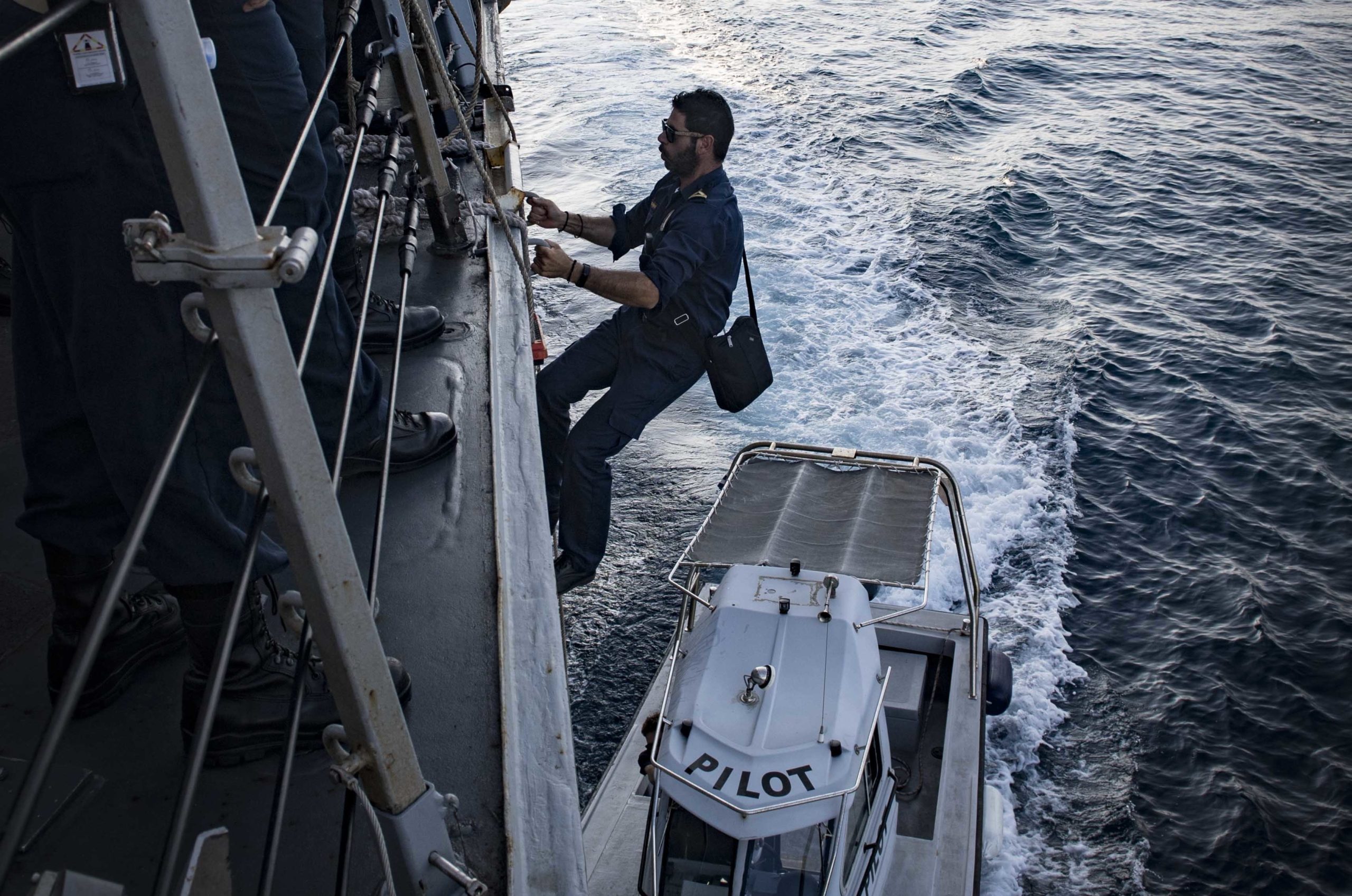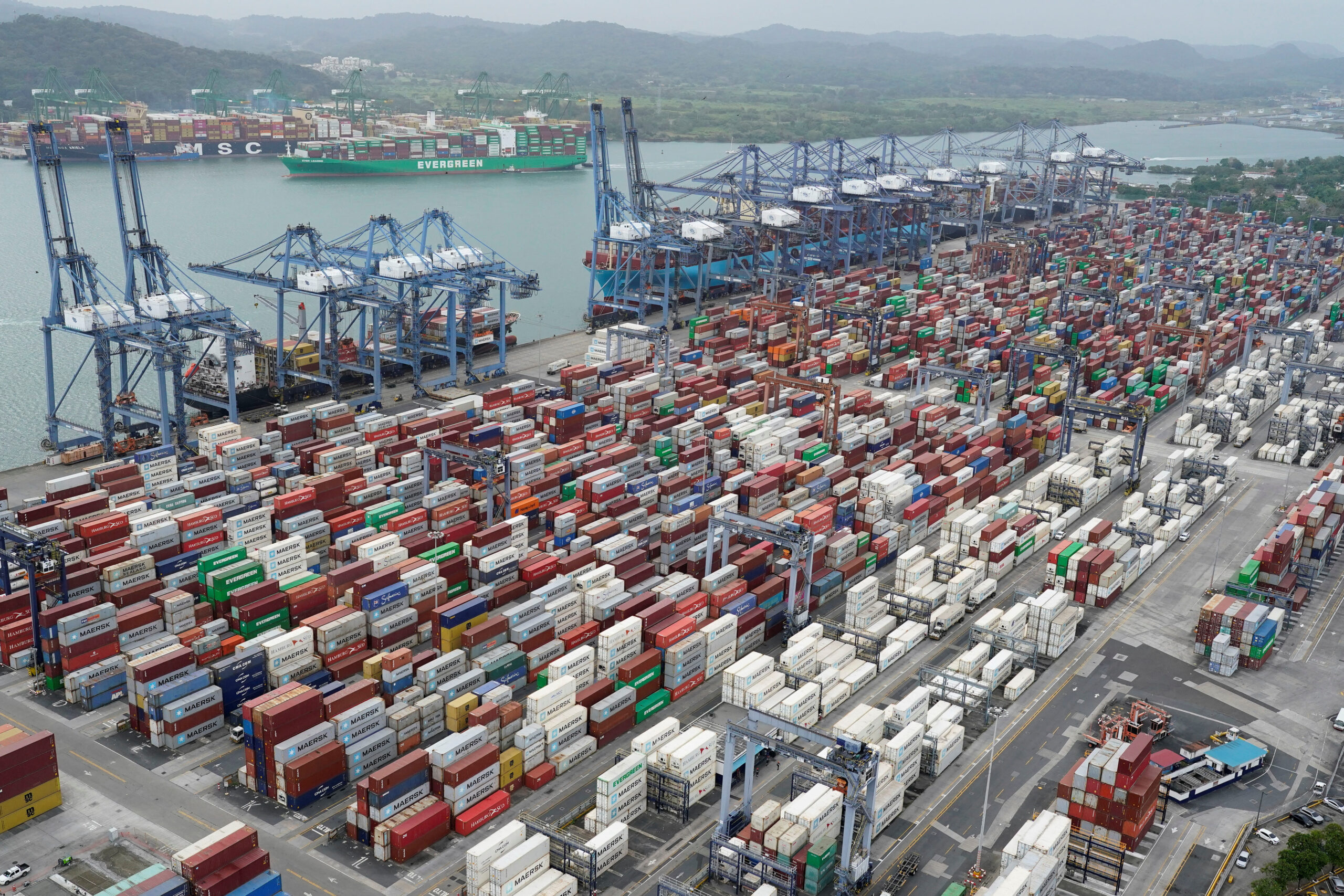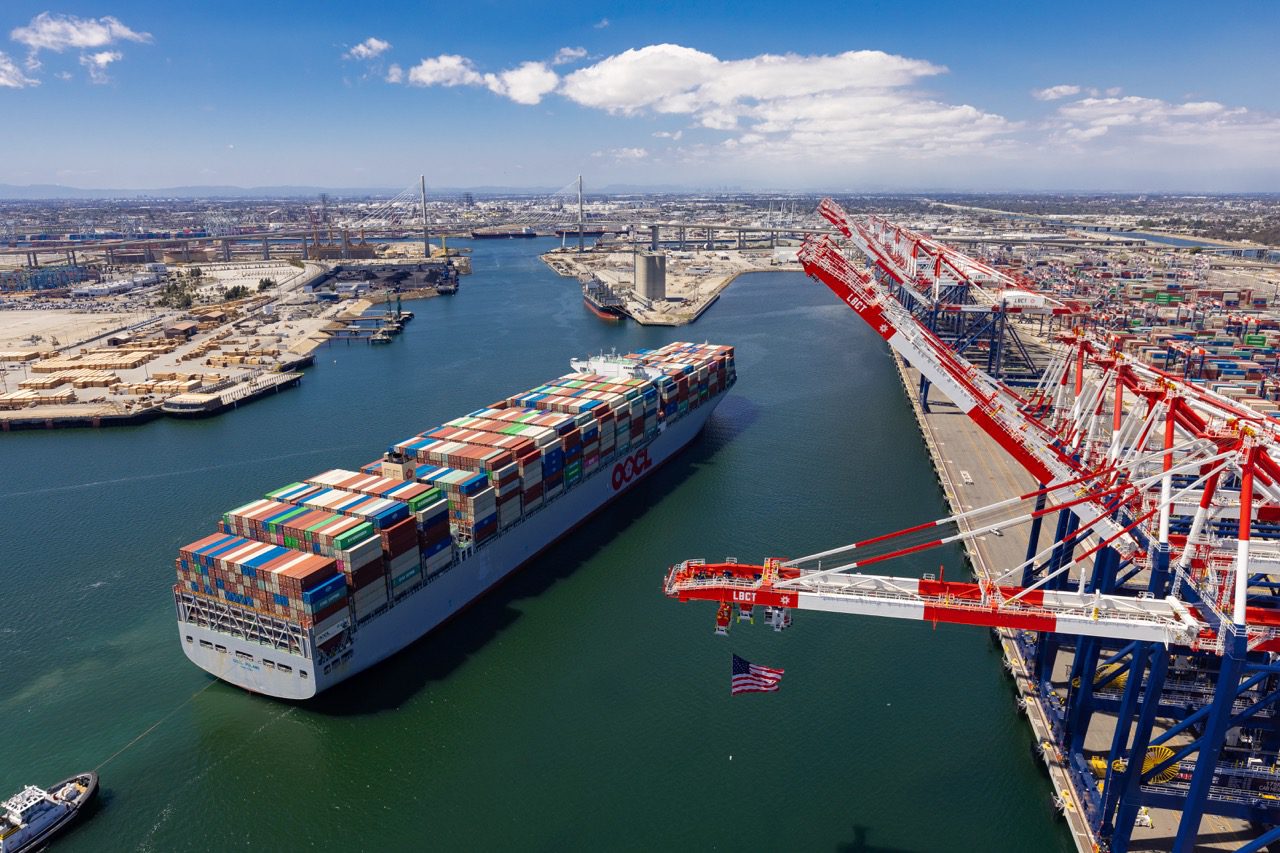UPDATE: Scroll down to find the US Coast Guard’s official response to this article.
by John Konrad (gCaptain) The senior ship pilot of a major American port told authorities today that he refuses to board any Russian flagged ships that enter the harbor. This comes on the same day the UK transportation minister called on all UK ports to deny access to any Russian “flagged, registered, owned, controlled, chartered, or operated vessels”.
In an email provided exclusively to gCaptain, the senior pilot asked west coast port authority officials to notify him if any Russian Flaged ships request entry into the port. The email, addressed to the manager of marine operations of the local port authority, states that the pilot refuses to board Russian ships. The port official responded quickly stating that he will take the message to the port’s executive team.
Also read: Britain’s Transport Secretary Calls on UK Ports to Deny Access to Russian-Linked Ships
“The attack on Ukraine and escalating threats of nuclear war against the United States as part of NATO has altered the Russian Master/American Pilot relationship,” said the senior pilot in an exclusive interview with gCaptain. “Much of what we do as pilots require trust and teamwork. I have heard Russians support of Putin and don’t believe it’s in America’s best interest to assist them in generating profits.“
If this pilot’s request is approved, it could put pressure on increasingly congested American Ports, as well as Russian shipping interests.
gCaptain contacted a number of pilot associations around the United States. The majority said the issue had not come up yet, but would be reviewed at upcoming port meetings. Don Marcus, president of the Master Mates and Pilots union, said the issue has not yet been discussed.
“In Florida our pilots can not make that call directly as it would be a violation of state law,” said Laura DiBella Executive Director at Florida Harbor Pilots Association. “We will, however, discuss the issue with our pilots and federal officials.”
Also Read: The Secret Life of Ship Pilots
In the United States most pilots are licensed by Individual States and most pilots say it’s not clear if they can refuse to board ships owned or operated by specific countries.
“The decision not to board a Russian ship would have to be approved by the State or Federal Government,” said an executive on the board of another large west coast port. “We would refuse to pilot a sanctioned ship but we don’t have the resources to track down vessel ownership so that order would have to come from a government official.”
According to the AIS ship tracking service Fleetmon, there are currently no Russian flagged ships near an American port. It is not clear how many Russian owned, controlled, chartered, or operated vessels are currently in American waters.
“We don’t see many Russian ships anyway but some Russian crews and a large number of Ukrainian seafarers,” said one senior California Pilot. “The few Russians and Ukrainians I have talked with are all furious at Putin.”
gCaptain has reached out the the US Coast Guard for clarifictation and will update this article when we recieve a response. The pilots interviewed for this story asked to remain off the record.
Follow @johnkonrad on twitter or LinkedIn
UPDATE: US Coast Guard Response
The US Coast Guard’s Public Affairs office provided gCaptain with the following answers to our questions about this article.
Q1. Can you clarify if a pilot can refuse to board Russian ships?
A. Pilots in the U.S. are generally regulated by individual States and are regulated separately from the Mariner Credentialing Program. Recommend contacting the American Pilotage Association for additional information.
Q2. Who is monitoring sanctioned ships and preventing them from entering the country?
A. Commercial vessels are required to submit an Advanced Notice of Arrival (ANOA) 96 hours prior to arriving in the U.S. The Coast Guard is monitoring ANOAs for the sanctioned vessels, and is authorized to prevent them from entering the U.S.
Q3. Is the USCG considering a blanket ban like the UK announced today?
A. The Coast Guard cannot issue a blanket ban on all vessels of a Flag State The Coast Guard is actively working with our Federal partners to ensure we are taking appropriate actions and are prepared to leverage maritime reporting and vessel control authority to enforce U.S. and international laws. The U.S. Coast Guard will continue to leverage our authorities and resources to support all U.S. diplomatic and security objectives related to the current situation in Ukraine, including U.S. sanctions.

 Join The Club
Join The Club











